A demand for vehicle contracts with greater flexibility coupled with the desire to test a range of electric vehicles (EVs) to understand their suitability in different scenarios has helped fuel the growth of green mobility provider Sogo.
The company is backed by dealer group Cambria Automobiles and is the result of a conversation between Karl Howkins, who now heads up the business, and Cambria chairman and chief executive officer Mark Lavery. “Mark told me that he wanted to get into fleet and I told him that offering mobility services was the way to go, I could see it’s what consumers wanted,” says Howkins.
Howkins has enjoyed many years in the automotive industry since he started washing cars as a teenager at a Vauxhall dealership. He quickly rose through the ranks to various managing director positions, latterly at Citroën UK.
His father and Sogo colleague is well-connected Fleet News Hall of Famer Maurice Howkins, whose career includes 50 years at Vauxhall and eight at General Motors, where he was Europe-wide corporate sales director. “Dad was the reason I started work at a Vauxhall dealership and in the car industry; I had no choice really,” he jokes.
Sogo describes itself as a ‘green mobility provider offering customers ultra-flexible terms with monthly leasing on cars and vans’. It was launched in January 2021. Customers include individuals as well as micro businesses, SMEs (small-to-medium-sized enterprises) and large corporates.
Last year, it teamed up with BP to operate a carbon-neutral fleet across petrol, diesel and EVs. It also joined the energy giant’s Target Neutral programme to help fleet customers measure, reduce and offset their carbon emissions. Another service aims to help drivers stuck in long-term leases and finance agreements via an equity release scheme.
Buying vehicles in bulk meant Sogo had a healthy supply available when fleets struggled to source them elsewhere because of the impact of the global semiconductor and component shortage. It proved to be a real ace up the company’s sleeve. Howkins explains:
A demand for vehicle contracts with greater flexibility coupled with the desire to test a range of electric vehicles (EVs) to understand their suitability in different scenarios has helped fuel the growth of green mobility provider Sogo.
The company is backed by dealer group Cambria Automobiles and is the result of a conversation between Karl Howkins, who now heads up the business, and Cambria chairman and chief executive officer Mark Lavery. “Mark told me that he wanted to get into fleet and I told him that offering mobility services was the way to go, I could see it’s what consumers wanted,” says Howkins.
Howkins has enjoyed many years in the automotive industry since he started washing cars as a teenager at a Vauxhall dealership. He quickly rose through the ranks to various managing director positions, latterly at Citroën UK.
Father in Hall of Fame
His father and Sogo colleague is well-connected Fleet News Hall of Famer Maurice Howkins, whose career includes 50 years at Vauxhall and eight at General Motors, where he was Europe-wide corporate sales director. “Dad was the reason I started work at a Vauxhall dealership and in the car industry; I had no choice really,” he jokes.
Sogo describes itself as a ‘green mobility provider offering customers ultra-flexible terms with monthly leasing on cars and vans’. It was launched in January 2021. Customers include individuals as well as micro businesses, SMEs (small-to-medium-sized enterprises) and large corporates.
Last year, it teamed up with BP to operate a carbon-neutral fleet across petrol, diesel and EVs. It also joined the energy giant’s Target Neutral programme to help fleet customers measure, reduce and offset their carbon emissions. Another service aims to help drivers stuck in long-term leases and finance agreements via an equity release scheme.
Buying vehicles in bulk meant Sogo had a healthy supply available when fleets struggled to source them elsewhere because of the impact of the global semiconductor and component shortage. It proved to be a real ace up the company’s sleeve. Howkins explains:
“SMEs and corporates contacted us saying ‘we can’t get vehicles, can you help?’ and we usually could.”
Last year’s growth saw it enter the FN50, the Fleet News list of the UK’s top 50 contract hire and leasing companies, at number 41.
No business is too small or too big to be a customer and Howkins is keen that Sogo spreads its net far and wide.
“I want a presence in every sales channel,” he says. “I want to be in private, SME, micro, corporates, all of it. We’re quite strong with a few fleets of around 300-400 vehicles. One we started with 10 vehicles and now we’re at 114, which is almost half of their total fleet.
“With corporates, we’re happy for them to just give us a try with a couple of vehicles. They may be perfectly happy with their existing supplier.”
Howkins describes the company’s approach with SMEs as ‘old school’.
He says: “We’ll pick up the phone and ask what vehicles they have and when they’re due to change, and then we’ll call them back. We are all car people in Sogo; it’s an industry we love and know about.”
Company growth
The approach has served the company well. Since launch, employee numbers have grown from four to 22 and last year the company moved into bigger premises in Milton Keynes.
Howkins adds: “Our first year couldn’t have gone any better in many ways. We never envisioned we would grow as quickly as we have and it’s a credit to a really great team. When we started out, we thought the business would be 30% traditional contract hire and leasing, with two-, three- or four-year contacts, but we’re 99% flexi and just 1% traditional.”
Howkins says Sogo is seeing two main factors drive its growth: “Firstly, companies are seeking greater flexibility in managing their mobility requirements as the pandemic continues to provide challenges. Secondly, our model allows them to test a range of EV product to understand its suitability for different scenarios.”
He also attributes success to how Sogo can meet a company’s desire to be green, even if decision-makers are nervous about making the switch to an electric fleet.
“The green transition, as we call it, is massive. The benefit for our business model is that technology is changing constantly. Do businesses want to lock themselves into a vehicle that’s got a 250-mile range today, but which will have a much longer range in four years’ time?,” Howkins asks.
“We help businesses and individuals to have their first experience of electric vehicles. Typical drivers’ concerns are ‘how do we charge it?’ and ‘how far can I go in it?’ and ‘what if I don’t like it in six months’ time?’. That’s fine, we’ll change it.”
By the end of 2021, 40% of the 800 cars on Sogo’s fleet were electric, with an average lease term of just six months. The longest Sogo wants a customer to keep a car is around 15 months.
Howkins says: “We’re not a daily rental company; the minimum we’ll supply a vehicle for is one month. Customers like the flexibility we offer, they like that we keep the tech updated constantly and they like that we’ll take the car back if a driver leaves the company.”
Salary sacrifice is another growth area, as Howkins explains: “Our salary sacrifice scheme is growing steadily and has three main benefits – we change the car every year, if there’s a change of circumstance and they need a bigger car for whatever reason we’ll change the car within the year and the third benefit is it’s all on our balance sheet, and a lot of businesses prefer that,” he says.
“We’ll always change vehicles at a maximum of 12 months. We need to ensure the vehicle remains off the company’s balance sheet and the employee has the latest technology available.”
He adds: “Employee retention is a massive thing and if you do salary sacrifice right, it can be seen as a bit of a pay increase for the employee who’s getting a new car for less than they would have done.”
Relatively low mileage vehicles combined with the fact most will only ever have had one driver keep residual values high.
All cars are fitted with telematics to not only alert drivers that they are approaching their mileage allowance, but also to provide data about how far a company’s cars travel each day, should there be any range anxiety concerns when planning an electrification strategy. The technology can also offer traditional telematics services to fleets, such as tracking and driver monitoring.
End-of-contract vehicles are sold through the franchised dealer network, including those owned by its parent company.
High used values
Commenting on the high used values currently being achieved by used cars and vans, Howkins says: “I’ve never seen anything like it in my career, but we don’t build a business model around it because it won’t last.”
The company’s fleet size stands at 2,500 vehicles and it aims to double that number this year. It also plans to be big player in all areas of mobility. Howkins says:
“Our aspiration for the next three to four years is to keep growing in a sustainable fashion. Our long-term plan is anything to do with mobility – where the industry will be in 10 years’ time is exciting. For us, it might be e-scooters, planes, who knows.”
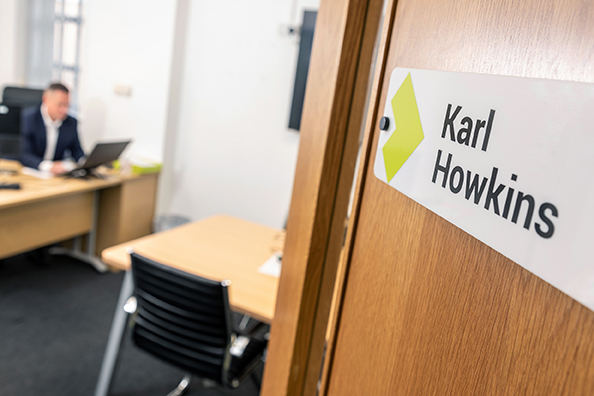
Login to continue reading.
This article is premium content. To view, please register for free or sign in to read it.



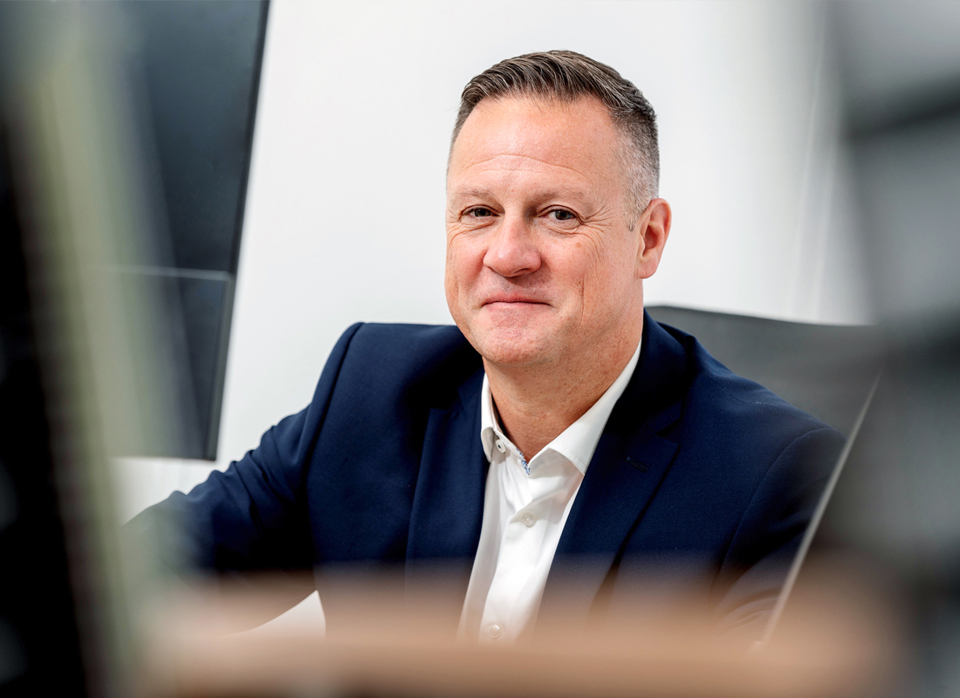
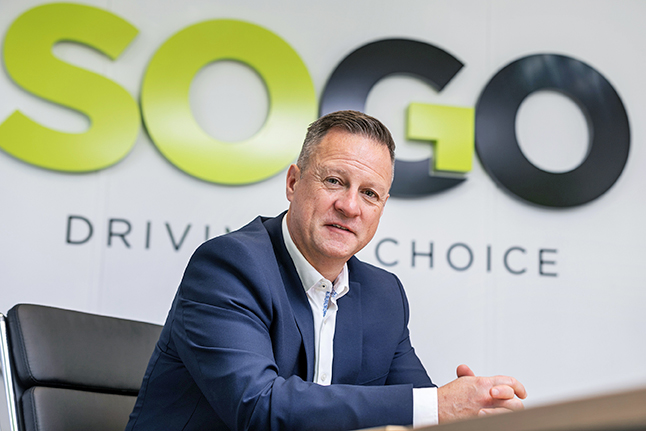














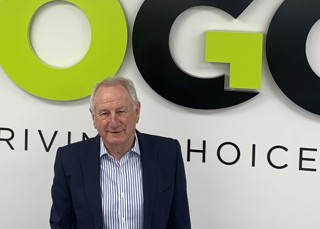
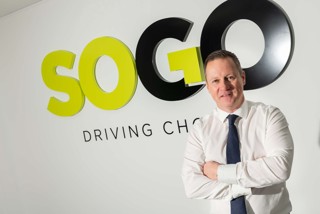
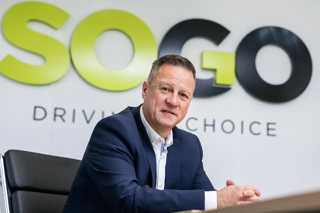
Login to comment
Comments
No comments have been made yet.